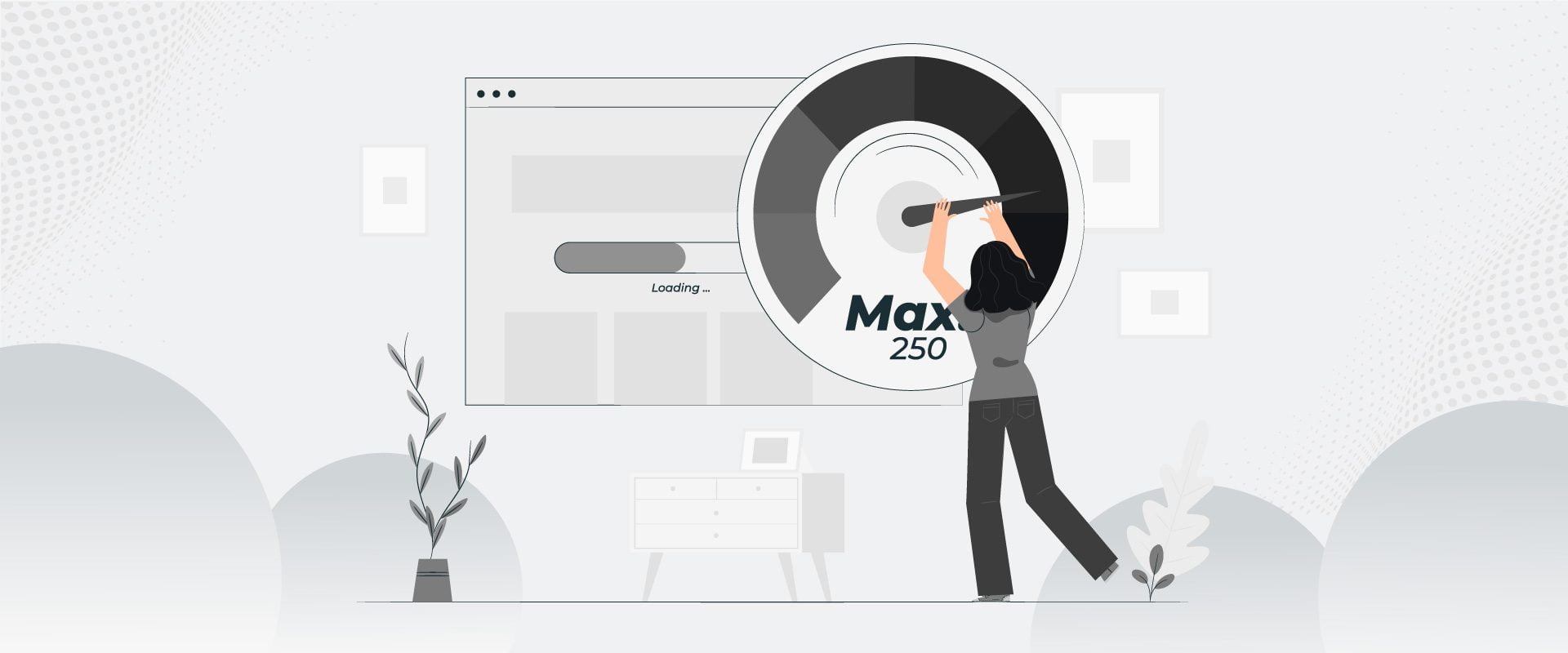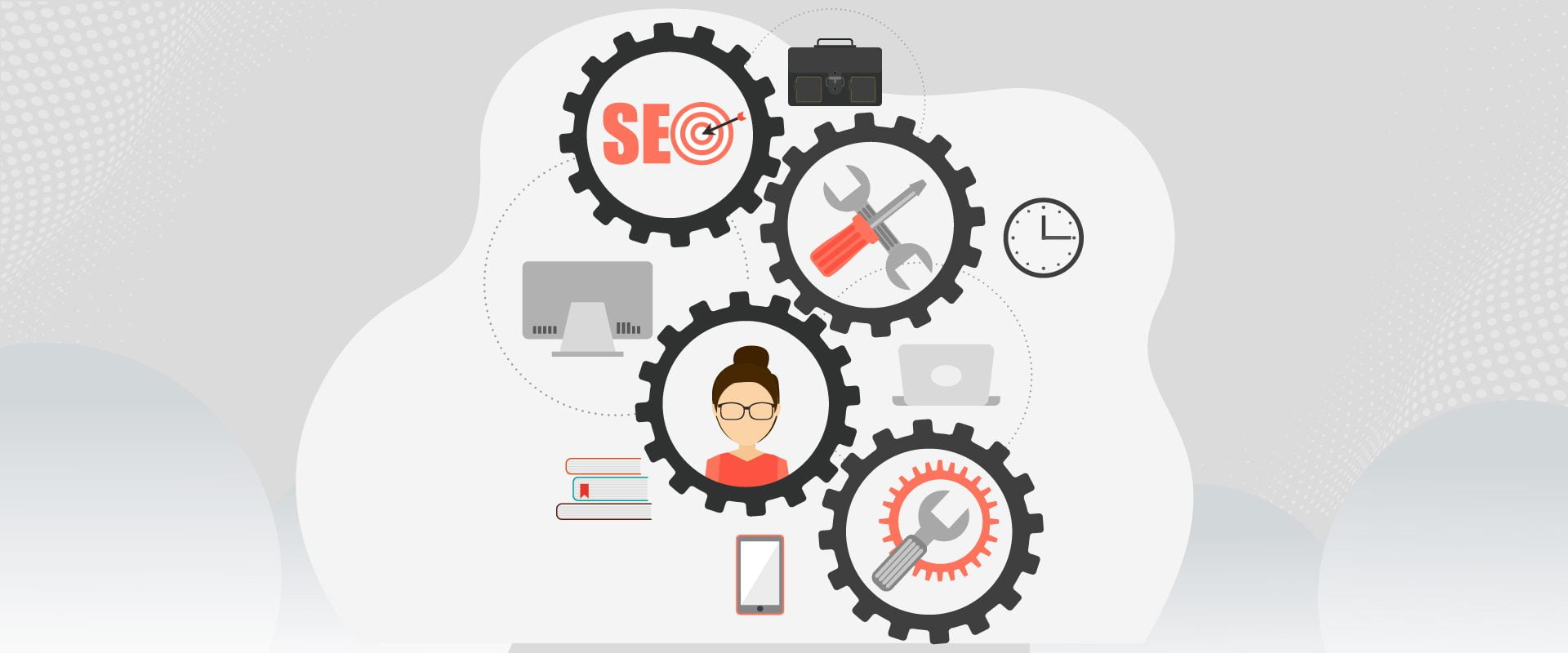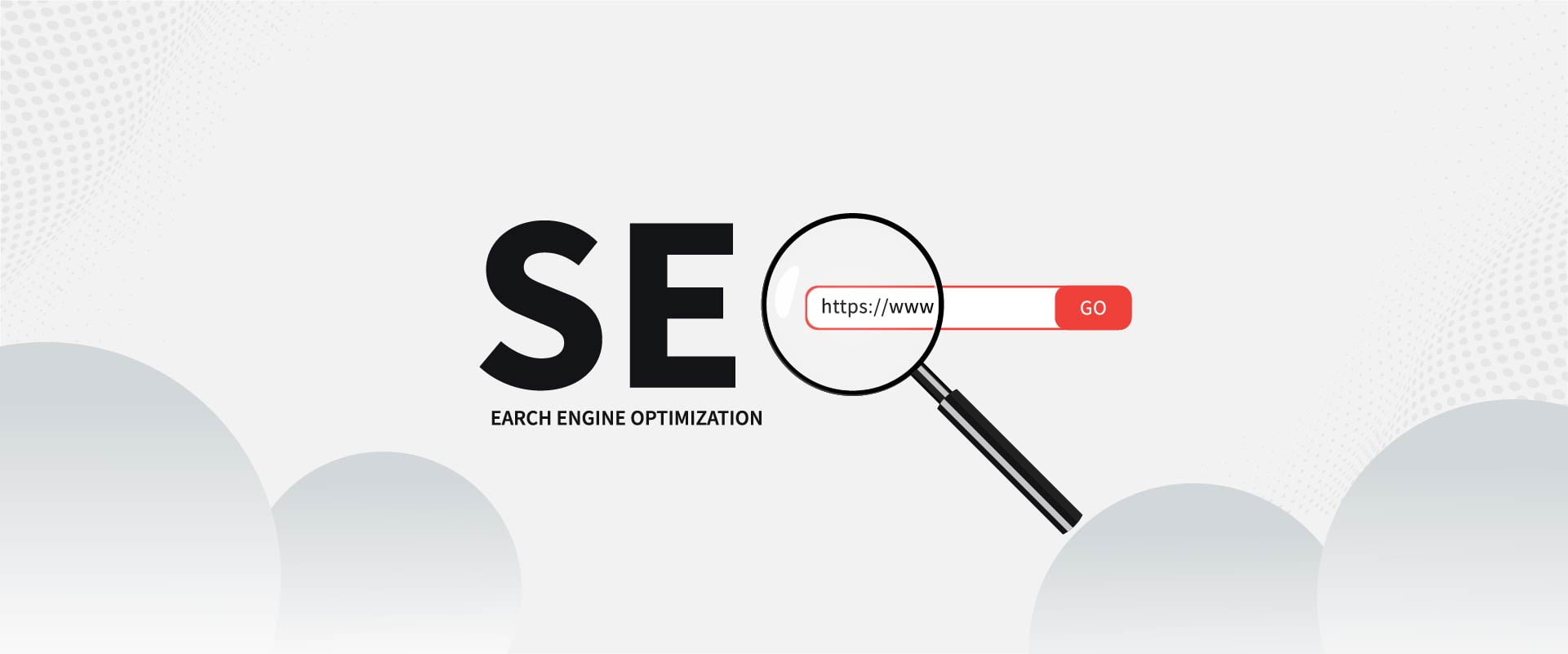
How Page Speed Affects SEO And How to Improve It?
In this oversaturated market, making your website stand out and rank higher on Google isn’t easy. You need to take a lot of factors into account. It includes page speed. For the success of your firm, speed is a key performance aspect. Your website’s conversion rate will suffer if it loads too slowly since potential customers may leave it within the first few seconds.
Google now places an equal or even higher value on the user’s experience on your website than it does on the usefulness and depth of your information. Page speed is the key component of user experience (UX) that affects SEO. Your site will rank higher in searches if you make sure that its interactive features and content load as quickly as possible. This will also help you optimise your website for Google’s constantly evolving algorithm. Additionally, page speed can affect your site’s bounce rate and session length, both of which have an effect on SEO.
The Critical Role of Page Speed in SEO and Ways to Boost It
Page speed is a critical factor to achieve and one of the most crucial things you need to do to improve your website’s performance is speed optimisation. Page speed affects SEO in many ways. Here’s an outline of page speed’s influence on SEO and suggestions for how to improve it.
What is Page Speed?
A website’s page speed is a measure that evaluates how quickly a page loads. Page speed focuses on a single page, as opposed to site speed, which refers to the average time it takes to load a complete website. The performance of the server, picture compression, file sizes, and other factors all affect page speed.
When you’re focusing on your brand to rank on the first pages of the Google SERPs, you need to be mindful of having a good page speed.
There is a higher chance that visitors will leave your website if a page on it takes a long time to load. In the event that your pages don’t load properly, this gives your rivals a chance to grab your audience. The information on your website should be accessible quickly and quickly. It’s crucial to keep your website’s page speed optimised.
How Page Speed Affects SEO?
Although there are many aspects that Google takes into account when deciding where a site ranks in a search, if your site loads much more slowly than your rivals’, Google will give it a lower rating. It follows that it is obvious that you need a quick website. You are weakening any additional SEO methods you may have put in place if a large portion of potential customers is leaving your website before viewing even one page. Page speed is important in SEO because of this. This is why good page speed is important for SEO.
If you are still not convinced, here are some reasons why page speed is significant for SEO.
Higher Conversion Rates and Lower Bounce Rates
Our attention spans have become shorter in this frenetic online age. Now, everyone desires fast content. Nowadays, efficiency and speed are key. Several studies have found a link between the number of people that get frustrated and how long it requires for a page to load.
Thus, your objective should be to have the fastest website in your market. It won’t help you to have a website or e-commerce platform that takes a very long time to load. People quickly click the back button and then disappear. You lose money and credibility with every visitor who leaves without purchasing. You may convince people to stay on your site longer by providing a quick one. That raises credibility and brand loyalty while enhancing your conversion rate.
Improved User Experience
Speed has a substantial impact on outcomes, according to research on consumer behaviour. Users dislike feeling annoyed, which results in these costs and site desertion. Poor experiences lead to customers leaving, visiting other websites, and switching to those businesses. These behaviours are simple for Google to detect, and they send a clear indication that the page shouldn’t be ranking where it did. Therefore, it’s essential to offer a positive customer experience.
Google is mindful of how critical page load time is to the user experience. Waiting for content to load, being unable to navigate the page seamlessly, and even detecting delays all cause friction. Friction wastes time, money, and the experience of your visitors.
Consider hiring an SEO team, who can continuously improve and maintain your site’s overall speed and implement necessary strategies, to achieve the ultimate goal of keeping your customers satisfied. They’ll love using your website, make more purchases, and visit more frequently. As you are providing the goods in terms of site quality, Google will consider your site to be a fantastic search result. You might eventually see a nice ranking improvement.
Improved Crawling for Search Engines
Today’s websites are extremely potent, and resolving that tangle can make a significant difference. The greater the size of your site, the greater the impact page speed optimisations will have. This has an impact not just on user experience and conversion rates, but also on crawl budget and crawl rate. Google has less time and resources to dedicate to other pages the more time and resources it spends crawling a page and its files. As a result, Google may overlook other relevant pages and material on your website. Optimising your website and content for speed will create a nice user experience for your visitors while also assisting Googlebots in crawling your site more effectively. They can come back more frequently and accomplish more.
Page Speed, A Ranking Factor
Google has consistently said that a speedy site allows you to rank higher. ‘Speed Update,’ is a page speed ranking factor for mobile searches. With this, Google evaluates the overall website performance.
Slow websites are often slow since they are ineffectual. They may have loaded too many huge files, haven’t optimised their media, or aren’t using new technology to deliver their content. That implies Google will need to consume more bandwidth, deploy greater resources, and allocate a greater amount of cash. That may be why Google emphasises page speed. A quicker web is beneficial for users and significantly decreases Google’s operating costs. In either case, this implies that they will continue to favour speedy sites.
The greatest strategy to rank is to create high-quality material. However, Google claims that when numerous pages with pertinent information fight for visibility in search results, page experience cues grow more crucial.
How to Improve Page Speed?
Browser Caching
The resources on your website will be fetched across the network when a user accesses it. The client and server may need to make several visits in order to do that. This causes processing to lag and could prevent the content of the page from rendering.
As an alternative, you can save time by defining a custom caching policy for all server answers. The policies for caching should specify whether a resource can be cached, who can cache it, how long it should be stored for, and whether it can be revalidated after the cache expires. The client can then determine when it can make use of a previously fetched response. That implies that users can save time by downloading material from your website from their cache rather than the network.
Image Comprehension
Large picture file sizes might also have a detrimental impact on site speed. To speed up the download of your CSS, HTML, and JavaScript files, turn on Gzip compression. When files arrive in your browser, Gzip compresses them and then decompresses them. For every HTTP request, the majority of contemporary browsers automatically process Gzip.
Minify Resources
Your CSS, HTML, and JavaScript resources may and should be minified to reduce their size. Formatting, coding comments, and other auxiliary information are removed during minification. The resource is still handled by the browser as before, though, without any changes. Your site’s overall speed can improve significantly and right away by minifying your code.
Performance Optimised Hosting Solution
The management and operation of your website are significantly influenced by the hosting company you choose. That includes the speed of its pages. Accepting poor hosting in return for a lower monthly charge is the biggest mistake you can make. Cheap hosting frequently results in subpar performance. It might entail splitting up server resources among several websites, which would slow down the load speeds of your pages. On the other side, there are a few hosting options that are performance-focused and offer a strong platform built for speed.
Avoid Landing Page Redirects
Your website’s loading times may suffer if there are too many redirects. The HTTP request and response cycle is lengthened each time a page redirects to another location. Your website’s page load speeds can be greatly lowered by eliminating pointless redirects.
It could take a while, depending on how many redirect chains are present on your page. Nevertheless, one is required! By following these easy steps, you may use Screaming Frog to determine which pages include redirect chains:
- run a thorough site crawl
- In the window’s top navigation, select the “Reports” tab.
- Choose “Redirect Chains”
It will output the URLs in an Excel spreadsheet, making it much easier to correct the redirect chains.
Optimise Images
Images contribute significantly to a website’s aesthetic appeal. However, they frequently make up the majority of the downloaded bytes for a website, thus it’s crucial to optimise them. To do that, you’ll need to consider an image’s significance, quality, type of encoded data, pixel dimension, format capabilities, and other factors. The final objective is to minimise the file size as significantly as possible without severely lowering the quality.
Implement A Content Delivery Network
A Content Delivery Network (CDN), sometimes known as a “content distribution network,” is an ensemble of servers that can accelerate the loading time of web pages. It accomplishes this by storing and distributing duplicates of the static material on your website from servers spread over the world.
CDN works with your host. You can use a CDN to distribute copies of your site’s files throughout carefully chosen data centres in addition to the server that serves your main website. This can increase speed by reducing the length of time that data requests have to travel over in order to reach your host’s servers from browsers. A CDN loads material for a website from a server close to each visitor, lowering TTFBs and network latency.
Minimise HTTP Requests
A unique HTTP request is necessary for each file that a webpage needs in order to operate, including JavaScript, HTML, fonts, and CSS. A page’s SEO loading time may be slowed down by too many requests. The possibility of additional JavaScript and CSS files being added by plugins is another issue. To hasten the loading of websites, reduce these queries. Utilising sprites for pictures and combining CSS into a single file is a few of the most efficient techniques.
Summary
One of the most important aspects of developing a website is the user experience. It has the power to make or break your website’s rankings. Page speed has a significant impact on this. Visitors are more likely to click the back button if your website is slow, which will harm your rankings and eventually reduce conversions. The speed of your website affects its rating on Google as a direct ranking element. Page speed has an impact on the bounce rate and session time on your site, both of which have an impact on SEO.
As a result, you can optimise your page performance in a variety of ways. You can go with a hosting option that is optimised for performance. You have the option of enabling browser caching and image comprehension. Reducing redirection, minifying resources, reducing HTTP requests, and optimising media files are all solutions you could go for. A content delivery network (CDN) can also be implemented.
The key element of a successful webpage is its page speed. So you must ensure a good page speed in order to make the most out of your SEO and see your website thrive in the long run.
Frequently Asked Questions (FAQs)
What is Page Speed?
Page speed is the time it takes for a page to load entirely in the browser after being requested.
How does Page Speed affect SEO?
A quick-loading page speed will benefit your SEO efforts because Google favours fast sites over slow ones.
What should be the average Page Speed?
An ideal page load time should be between 0-2 seconds.
What’s the difference between Page Speed and Site Speed?
Website speed refers to how long it takes for your website to load, whereas page speed refers to how long it takes for a given page on a website to load.


